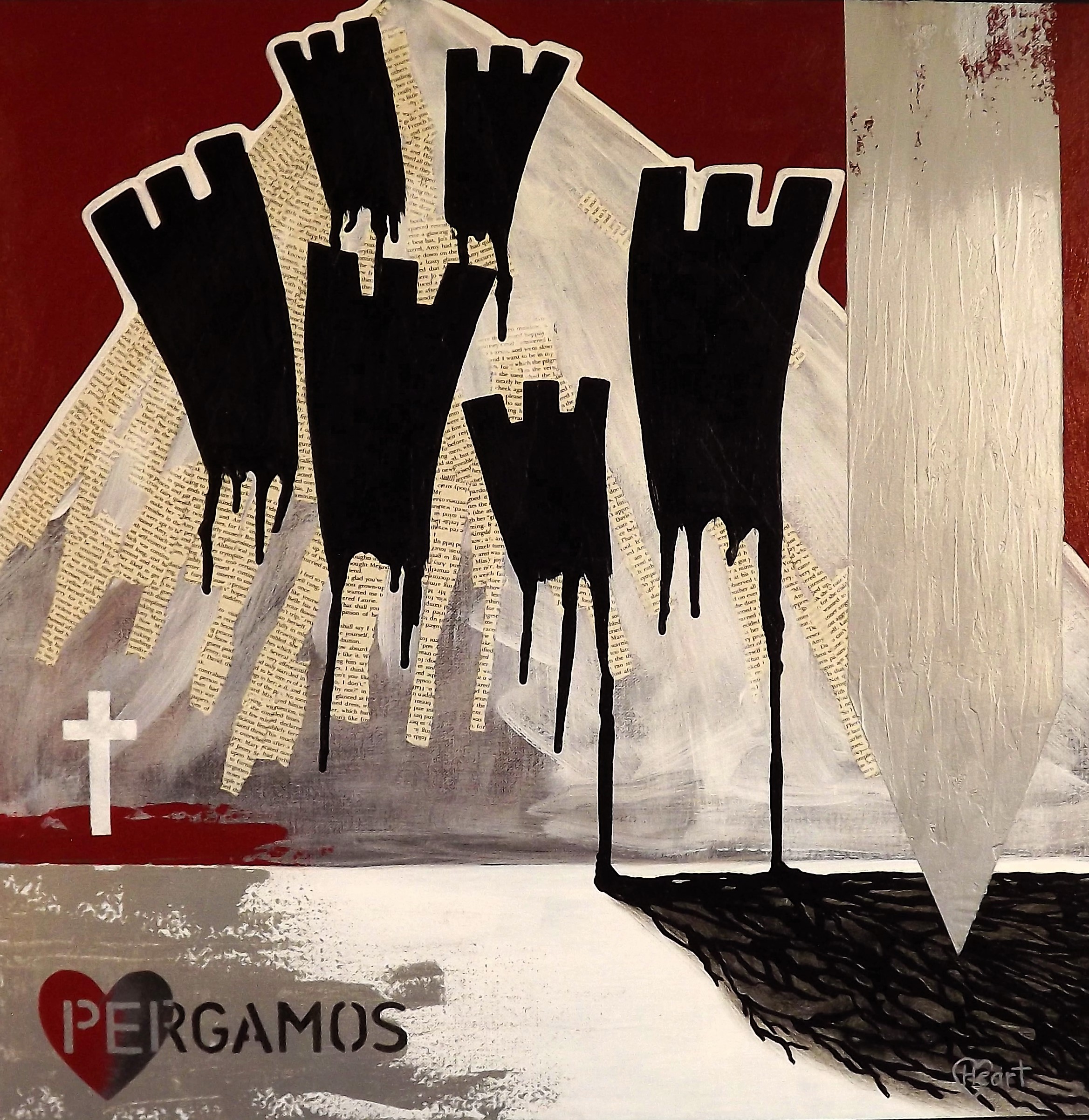FOR SALE
The whole book of Revelation is highly symbolic and open to many interpretations, including the seven letters to the churches that are featured in chapters 2 and 3. I chose to research the background and character of the original church and see what teachings and warnings we can glean from it for our own churches and personal lives. The letter for the church at Pergamos is the third letter.
The city of Pergamos (also known as Pergamum) was the centre for Emperor worship in Asia. The city was situated on a cone shaped hill and its name in Greek means ‘citadel’ (fortress). It had a library that rivalled the biggest one in the world at that time which was in the Egyptian city of Alexandria. Papyrus, which was sourced from Egypt, was the common writing surface used for the day. Apparently, as some historical commentaries have documented, Egypt was jealous of Pergamos’ library and refused to ship more papyrus to Pergamos, and as a result, parchment was created in Pergamos as an alternative.
The church at Pergamos was surrounded by God’s enemies, yet did not renounce their faith even though a believer named Antipas had been tortured to death for remaining faithful (he was boiled in oil). Christians who would not renounce their allegiance to Christ and pledge their worship of the emperor were often executed. Emperor worship continued as the official religion of the roman empire until Christianity was recognised under the emperor Constantine who reigned from 305-337AD.
In Pergamos, the Christians stood out because of their worship of Jesus as the one true God. Yet some in the Pergamos church allowed themselves to be corrupted by the loose morals from the influences around them. I chose to illustrate the contamination of a clean river to give that idea of that corruption. Lessons in the bible teach us to be ‘in the world but not of the world’ and it says in Romans 12:2 – ‘Do not conform to the pattern of this world, but be transformed by the renewing of your mind. Then you will be able to test and approve what God’s will is – his good, pleasing and perfect will.’
As with the other letters, the church is encouraged to listen to the warning and take heed, and are encouraged with rewards for those who endure.
